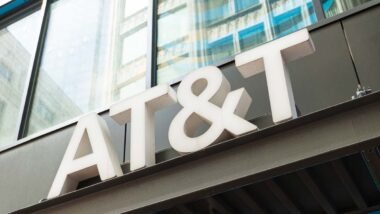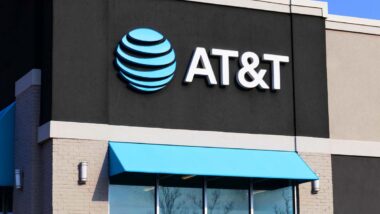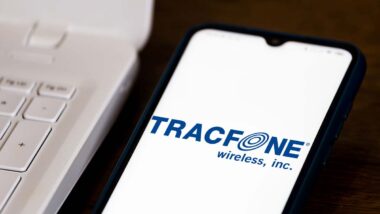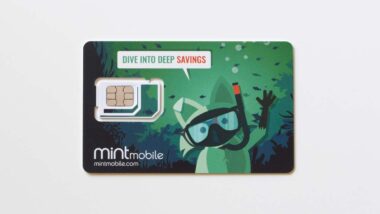Top Class Actions’s website and social media posts use affiliate links. If you make a purchase using such links, we may receive a commission, but it will not result in any additional charges to you. Please review our Affiliate Link Disclosure for more information.
In 2021 there were over 50 billion robocalls in the United States.
A robocall is a call that delivers pre-recorded messages through auto-dialing software, and its purpose is usually to sell consumers something and scam them.
America’s telecommunications watchdogs have attempted to impose heavy financial penalties against illegal robocallers. They have demanded that they repay millions to their victims, but almost no funds have been retrieved years later.
Since 2015, the Federal Communications Commission has ordered violators of the Telephone Consumer Protection Act (a federal law governing telemarketing and robot dialing) to pay $208.4 million.
That massive amount includes forfeiture orders in cases involving robocalling, Do Not Call Registry, and telephone solicitation violations. The FCC has only collected $6,790 of the $208.4 million.
Christopher Roberts, a lawyer with Butsch Roberts & Associates, explained to Top Class Actions that private citizens could help end spam/robocalls by enforcing their rights and using the law – which is more effective than the ability of the government to end these calls.
The reason why there seems to be an increase in robocalls as of late, Roberts says, might be due to a ruling from the United States Supreme Court last year in a case called Facebook v. Duguid.
“That has made it much more difficult for consumers to prevail. I think that more calls are being placed because it’s more difficult to prove that something was an autodialer now than it was before,” Roberts told Top Class Actions.
According to Roberts, as technologies have evolved, it has become easier and cheaper for companies to send large amounts of calls or text messages.
Roberts says the new FCC commissioner has expressed an interest in more vigorously enforcing the laws and imposing penalties against robocallers.
“The government has a role, but I think that consumers have an even more important role,” Roberts told Top Class Actions, “Private citizens have an incentive to stop these calls from coming to their phones, and the way they do that is most commonly is through a federal law called the Telephone Consumer Protection Act, which provides a private right of action for consumers to get $500 and potentially up to $1,500 per illegal call.”
Some states are now starting to adopt statutes that provide additional protections for consumers. For example, Florida has adopted a statute that provides a penalty under state law for robocallers and also now has a more expansive definition of what an autodialer is.
“The government has a role, and it’s really important that the private citizen — the consumer — has a more important role, because the government does not have the resources to pursue all these illegal calls…and there’s billions of these calls placed in this country alone this year,” Roberts told Top Class Actions.
If you’re on the National Do Not Call list and get multiple marketing calls after you’ve been on that list for more than 31 days, the potential recovery for the consumer is $500 to $1,500 per illegal call.
In the TRACED (Telephone Robocall Abuse Criminal Enforcement and Deterrence) Act, Congress gave the FCC new ways to fight unwanted and often illegal robocalls, the top consumer complaint reported to the FCC annually.
“Congress adopted this law to give the consumer a tool to fight back and begin to reclaim their phone and their peace of mind,” Roberts told Top Class Actions.
For consumers to better protect themselves against relentless robocalls, they need to be more informed about their rights, and they need to check their state laws to see if any specific telemarketing laws can be used to help stop these calls.
[getsocial app=”sharing_bar”]
Don’t Miss Out!
Check out our list of Class Action Lawsuits and Class Action Settlements you may qualify to join!
Read About More Class Action Lawsuits & Class Action Settlements:
- Grainworks Recalls Poppy Seeds Due to Salmonella Contamination
- Olaplex Class Action Claims Hair Care Product Sold at Sephora Contains ‘Dangerous Chemical’
- Bioderma Makeup Remover Recalled Over Microbial Hazard That Can Cause Skin, Eye Infections
- Neutrogena Class Action Lawsuit Says Cleansing Towelettes Cause Burns
ATTORNEY ADVERTISING
Top Class Actions is a Proud Member of the American Bar Association
LEGAL INFORMATION IS NOT LEGAL ADVICE
Top Class Actions Legal Statement
©2008 – 2024 Top Class Actions® LLC
Various Trademarks held by their respective owners
This website is not intended for viewing or usage by European Union citizens.















31 thoughts onTCA Explains: How Can Consumers Protect Themselves Against Robocalls?
I’m on the no call list, but still get call from Medicare affiliated companies I never contacted, Global Reach Labs, AT&T and unfortunately many others. I block them, but they still keep coming. Help!
We are so tired of robo calls it’s ridiculous please add me
add me I get about 6 or more
Please add me
Please add me. Many calls a day
Please add me. I get 20 to 30 calls a day and i have veen on the do not call list for years
I get calls daily non stop.
Please add me phone calls starts early in the morning.
I have been on the do not call registry for several years. I receive robo calls on a daily basis. I have a new cell number as of December 4, 2021. I block every robo call I receive. When I block a robo call even though they’re blocked I continue to get voice mais. Unfortunately I have yet to set up my voice mail.
These calls are nine stop I block one number they call from a different one.
Calls are worse and worse. Constant non stop. I block and they just use a nother number in a series of numbers. I don’t even answer my phone bcus if this. I’m sick n tired of these idiots Calling over and over and over again from same places different places to Mini calls every single day it needs to be stopped